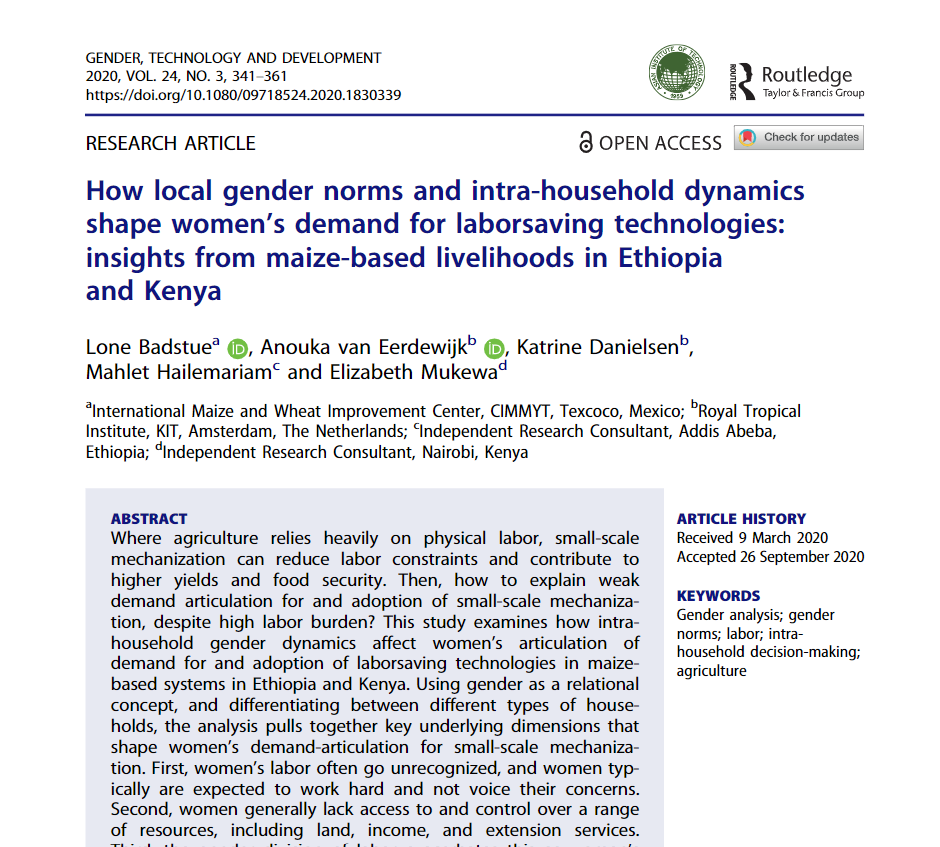How local gender norms and intra-household dynamics shape women’s demand for laborsaving technologies: insights from maize-based livelihoods in Ethiopia and Kenya
Abstract
Where agriculture relies heavily on physical labor, small-scale mechanization can reduce labor constraints and contribute to higher yields and food security. Then, how to explain weak demand articulation for and adoption of small-scale mechanization, despite high labor burden? This study examines how intra-household gender dynamics affect women’s articulation of demand for and adoption of laborsaving technologies in maize-based systems in Ethiopia and Kenya. Using gender as a relational concept, and differentiating between different types of households, the analysis pulls together key underlying dimensions that shape women’s demand-articulation for small-scale mechanization. First, women’s labor often go unrecognized, and women typically are expected to work hard and not voice their concerns. Second, women generally lack access to and control over a range of resources, including land, income, and extension services. Third, the gender division of labor exacerbates this as women’s time poverty negatively affects their access to resources and information. Finally, decisions are primarily seen as men's domain, and women are often excluded. Our study contributes to the literature by offering a conceptual approach and methodology for the analysis of gender dynamics in relation to demand articulation and adoption of laborsaving technologies.

